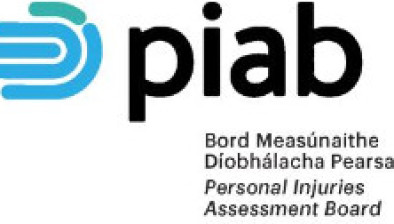High Court: €8,500 for child injured by ceiling fan in hotel when father lifted him above his head

The High Court has awarded €8,500 for injuries sustained to a child after he was cut by a ceiling fan after his father lifted him up. The child received a small but permanent scar behind his ear. The father claimed that he had twice complained to hotel staff about the low ceiling fan but was not provided with another room.

About this case:
- Citation:[2022] IEHC 89
- Judgment:
- Court:High Court
- Judge:Mr Justice Cian Ferriter
Delivering judgment in the case, Mr Justice Cian Ferriter determined that, on the specific facts of the case, there was a breach of the duty of reasonable skill and care on the part of the holiday company, which rendered it liable under section 20 of the Package Holidays Trade and Travel Act 1995. The court also awarded €3,596 to reimburse the father for the holiday.
Background
The plaintiff was the father of the injured child and acted as his next friend in the proceedings. In 2015, the plaintiff travelled with his family to Tenerife on a package holiday organised by Sunway Travel Limited. The child was three years old at the time. The holiday cost €3,596 for the two-week stay.
Shortly after they arrived at the apartment/hotel, the plaintiff hit his fingers on the ceiling fan while changing his t-shirt. The plaintiff was a tall man, standing at six foot three inches. The following morning, the plaintiff went to the reception and expressed a concern that the ceiling fan was too low and dangerous. The plaintiff was told there was no other accommodation available, despite asking a second time on the third day.
On the fourth day of the holiday, the child began crying. The plaintiff went to comfort the child and lifted him up. Unfortunately, the plaintiff did not realise that he was standing under the ceiling fan. The plaintiff lifted the child above his head, where the ceiling fan (which was on) struck the child.
The child suffered a cut on his head and was very distressed. The child was rushed to a local GP’s surgery where he received three stitches to mend the laceration. The stitches were removed before the end of the holiday.
On their return to the aparthotel, the family complained to the manager, who apologised and stated that there was, in fact, other available accommodation in the premises. The plaintiff and his family moved into an air-conditioned apartment with no ceiling fans.
It was established that the fan was 6 feet 9.5 inches above the floor. In cross-examination, it was put to the plaintiff that the accident was caused entirely by him lifting his child to a height of nearly seven feet. Further, he was questioned as to whether he would maintain a claim if his child had hit his head off a doorframe.
The plaintiff maintained that he had twice complained of the ceiling fan as a hazard. The plaintiff also argued that the ceiling fan was a very different hazard than that of a doorframe or curtain pole. Finally, he stated that it was necessary to keep the fan on due to the heat in Tenerife.
Expert evidence was provided by the plaintiff which stated that the ceiling fan was too low and represented a clear hazard, although the evidence could not identify any minimum standards for Irish or Spanish fans. It was accepted that other building regulations (such as doorframes) were lower than the ceiling fan in this case, but it was said that the ceiling fan represented a different kind of hazard to a doorframe.
The case was dismissed in the Circuit Court and was appealed to the High Court.
High Court
The court began by outlining the relevant legislative provisions. Section 20 of the 1995 Act provided that the organiser of package holidays would be liable for any damage caused by a failure to perform the contract. The court noted that the 1995 Act did not stipulate the scope of the obligations owed to consumers of package holidays.
In Kellett v. RCL Cruises Ltd & Ors. [2020] IECA 138, the Noonan J outlined the principles which applied to claims under section 20 of the 1995 Act. These included, inter alia, that the appropriate test was whether reasonable skill and care had been employed in the provision of the service, that the appropriate standards were those of the locus of the accident and that a court was entitled to have regard to internationally recognised norms.
The court also referred to the separate judgments of Collins and Haughton JJ, where it was queried if the test of reasonable skill and care was to be judged by the standards of the place where the event occurred. It was noted that there may need to be a reference to the CJEU under Article 267 on the point, as the 1995 Act was derived from Council Directive 90/311/EEC.
It was held that, on the particular facts of the case, there was a breach of duty by the defendant. The plaintiff had specifically complained about the ceiling fan and requested alternative accommodation. The request was not complied with even though it transpired that there was alternative accommodation at the aparthotel. The defendant was on notice of the specific hazard identified by the plaintiff but did not act accordingly.
It was further held that the accident was foreseeable because it had been communicated to the defendant that the ceiling fan was an actual hazard. The reality was that parents would often lift their children up to their height or above in order to soothe them, the court said. It was a perfectly natural reaction for the plaintiff to have lifted his child in the manner which caused him harm.
While the court accepted that, due to the location of the injury, it was likely that the child was lifted higher than six feet nine inches in the air, this did not answer the plaintiff’s case. An important aspect of the case was that the plaintiff sought alternative accommodation and, as such, the accident would not have happened if this was provided.
Conclusion
The court noted that the child’s injuries had healed well, but that he was left with a small permanent scar behind his ear. The court assessed the scar at €8,500 and also awarded €3,596 to the father as reimbursement for the holiday.







